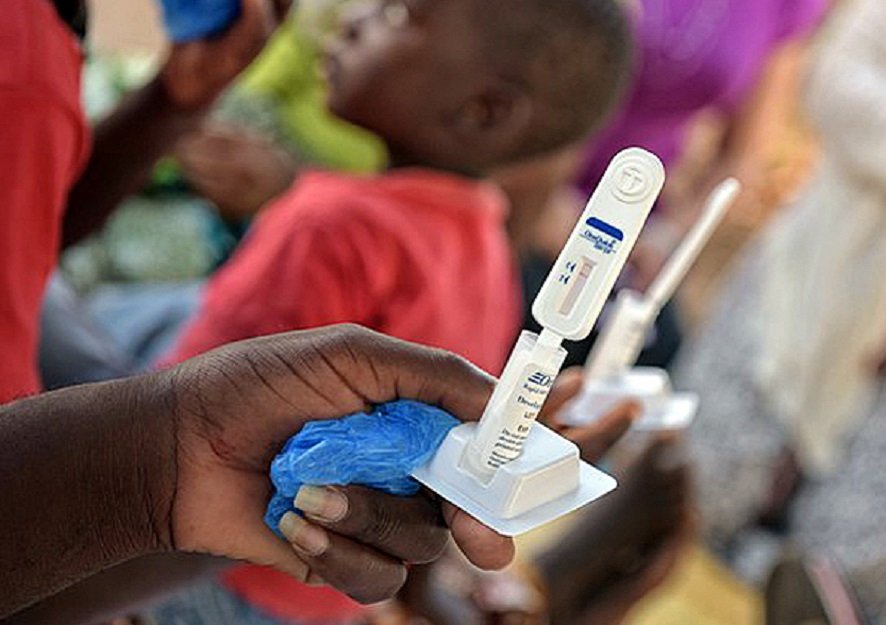Three out of every 10 people with HIV worldwide do not know they have the virus to enable them to seek early treatment.
Many have refused to check their status due to stigmatization, and the reluctance to use clinics because of fear of discrimination by medical staff.
But what many do not know is that there is a self-screening kit that is affording people the privacy to have the tests done in the comfort of their homes.
The kit, an initiative of Unitaid, the Geneva-based organisation was introduced in Malawi, Zambia and Zimbabwe in 2015 and has since last year expanded to South Africa, which is home of the world’s biggest HIV epidemic.
In South Africa, the initiative first started by a team of young peer educators convincing men, particularly those between 18 and 30 to take the tests in HIV self-testing stands that were dotted in Hillbrow, a major city in the country.
The kits which include a stand (for the cylinder of liquid), a liquid and testing pen are now being distributed freely to passersby to take home to do their own tests.
All one is required to do is to swipe the testing pen across the gums and leave it in the liquid.

Swipe the testing pen across the gums — Daily Monitor
The testing takes 20 minutes and is more than 90% accurate at identifying an HIV-positive result, the producers say.
After 20 minutes, the test results are delivered by lines that indicate negative or positive.
The kits contain advice on what to do if a home test is positive following fears that leaving people to test on their own may lead to self-harm or violence.
People who take the kits are also expected to give their details to counsellors first and are given advice on what to do with the results they receive.
Those who test positive are further given a confirmative test and if that also proves positive, they can start antiretroviral treatment.
East and Southern Africa is the region most affected by HIV in the world and is home to the largest number of people living with HIV.
In South Africa, about 7.1 million people living are leaving with HIV and the self-testing method is expected to influence more people to know their status to get early treatment.
“Within the next five years this will be really normal,” Karin Hatzold, director for HIV services at Population Services International, which is implementing the project was quoted by news site The Guardian.
She said clinics will still offer confirmative testing, but most people will do an initial test at home.










